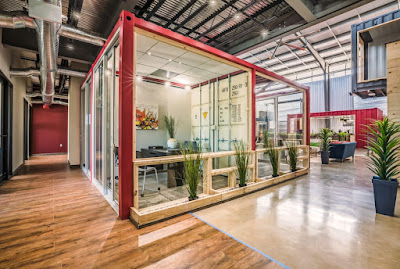Can Co-working Spaces Support the Future Flexible Work Model?
The worldwide epidemic has already altered how we work and live, particularly in the IT industry. While traditional building blocks for office culture included in-person group meetings and team-building exercises, the expectations for what an "office culture" entails have been reimagined.
Various organizations have recently completed detailed investigations of the COVID-19-initiated work-from-home (WFH) experiment. Many IT businesses, including Office Suites in The Woodlands and other flexible operators, are paving the way for a more integrated remote working strategy. Their initiative is gaining popularity in various companies to decrease expenses while enhancing employee morale and convenience. According to a CNBC poll, 24 percent of respondents expect to work from home on a more permanent basis than they did before the epidemic. This amount, if extrapolated to all countries, could be enormous.
Surveys Analytics:
Employees at roughly 90 Singapore-based organizations, for example, stated they want to continue working from home in some manner. Statistics like these show that firms worldwide will continue to track Work From Home production and will likely declare permanent flexibility plans following COVID-19.
Perhaps most intriguingly, in the same Singapore poll, 15% of employees stated they wished to work from home all of the time. It means that employees, and by extension their employers, may choose a Work From Home policy that provides optimal flexibility.
Companies could implement a policy that includes Work From Home days and mandated hours spent in an office or coworking space, for example. Employees might also sign a contract for a flexible workspace in town, where they can work certain days if they need a change of scenery or pace.
The value of global coworking:
Companies already realize the benefits of offering coworking memberships to their staff. Employees may use these memberships to access many coworking spaces, virtual offices, and hotels in locations worldwide.
One option for a flexible coworking pass is Co-worker's Global Pass, which covers thousands of spaces in over 600 locations. This solution improves the process of locating accessible workspace flexibly for organizations with teams in several countries, providing employees in one country the same possibility to WFH or use a coworking space as the team in the other country.
Final Thoughts
Companies in The Woodlands will continue to enable workers to work from home in some manner as employee expectations evolve throughout the world. The WFH trend is here to stay, with many business owners opting to downsize and decentralize their operations.




Comments
Post a Comment